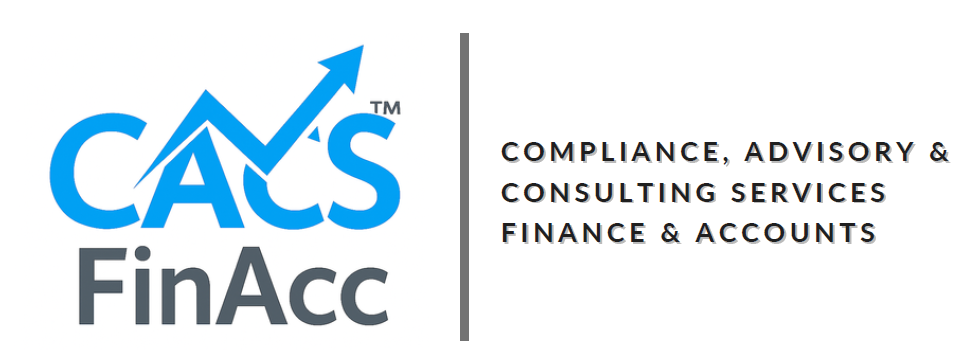Legal Entity Identifier
Legal Entity Identifier (LEI) Registration in India
The Legal Entity Identifier (LEI) is a unique 20-character alphanumeric code based on the ISO 17442 standard, designed to uniquely identify legal entities participating in financial transactions worldwide. In India, the LEI system is overseen by the Legal Entity Identifier India Ltd. (LEIL), a wholly-owned subsidiary of the Clearing Corporation of India Ltd. (CCIL), and is accredited by the Global Legal Entity Identifier Foundation (GLEIF).
Structure of an LEI Code
The structure of a Legal Entity Identifier Code, which is standardized under ISO 17442, comprises a 20-character alphanumeric sequence. Here is a LEI code example:
| 8 | 9 | 4 | 5 | 0 | 0 | 2 | 7 | A | K | 4 | L | S | O | G | X | G | Y | 1 | 8 |
| LOU identification code | Always 00 | Unique identifier | Control numbers |
- Characters 1-4: These always represent the identifier of the Local Operating Unit (LOU) that issued the LEI.
- Characters 5-6: These are always set to '00'.
- Characters 7-18: These characters are unique to each entity and differ from one LEI to another.
- Characters 19-20: These are check digits used for LEI verification purposes.
Purpose of LEI Registration Code
The primary purpose of an LEI - Legal Entity Identifier code is to enhance transparency and improve risk management in the global financial system. By providing a unique identifier for each legal entity that engages in financial transactions, the LEI Code helps to ensure that entities can be easily and distinctly identified worldwide, facilitating more accurate and efficient tracking of financial transactions. This, registering and obtaining the LEI certificate registration, helps the entities for a quicker identification globally.
Applicability of LEI Register Code
The LEI registration applicability spans a wide spectrum of entities involved in significant financial transactions. Here's a detailed overview of who needs an LEI number in India:
- Financial Institutions: Banks, insurance companies, and non-banking financial companies must have an LEI to facilitate the monitoring and regulation of financial transactions.
- Stock Market Participants: Entities listed on stock exchanges or those participating in the depository system are subjected to LEI applicability, as mandated by the Securities and Exchange Board of India (SEBI).
- Derivatives and Forex Markets: Participants in over-the-counter derivatives and foreign exchange markets are required to possess an LEI to help track transactions and manage counterparty risk.
- High-Value Transaction Entities: Any legal entity involved in transactions exceeding Rs.50 crore through systems like the Real Time Gross Settlement (RTGS) are subjected to LEI registration applicability.
- Large Borrowers: Entities with fund-based or non-fund-based exposures of Rs.5 crore or more, as well as corporations with financial exposures of Rs.50 crore or more sourced from banks, UCBs, NBFCs, and AIFIs, necessitates the LEI Code Applicability.
- Public Securities Transactions: Issuers, guarantors, borrowers, or security providers dealing with securities issued to the public, listed on a stock exchange, or included in the depository system must secure an LEI.
Who Needs an LEI in India?
- Large Borrowers: Entities with fund and non-fund-based credit exposure of ₹5 crore and above from banks and financial institutions.
- Participants in Derivative Markets: Entities dealing in Over-the-Counter (OTC) derivatives, including interest rate, forex, and credit derivatives.
- Entities in Non-Derivative Markets: Participants in government securities, money markets, and non-derivative forex markets.
- Large Value Transactions: Entities undertaking single payment transactions of ₹50 crore and above through Real Time Gross Settlement (RTGS) and National Electronic Funds Transfer (NEFT) systems.
- Listed Companies and Their Subsidiaries: All companies listed on Indian stock exchanges and their subsidiaries.
- Regulated Entities: Banks, Non-Banking Financial Companies (NBFCs), insurance companies, and pension funds.
- Entities Engaged in Cross-Border Transactions: Businesses involved in international trade and cross-border financial transactions.
Note: Entities with exposure above ₹5 crore and up to ₹10 crore need to obtain an LEI by April 30, 2025.
Documents Required for LEI Registration
- Proof of Legal Existence: Certificate of Incorporation, Partnership Deed, or Registration Certificate.
- PAN Card: Permanent Account Number of the entity.
- Proof of Address: Utility bills, lease agreements, or bank statements not older than three months.
- Authorized Signatory Details: Identity proof (Aadhaar, PAN, or Passport) and authorization letter or board resolution.
- Ownership Structure: Details of parent and ultimate parent entities, if applicable.
Additional documents may be required based on the entity type and specific circumstances.
LEI Registration Process
- Choose an Accredited Local Operating Unit (LOU): In India, LEIL is the authorized LOU for issuing LEIs.
- Submit Application: Fill out the LEI application form available on the LEIL website.
- Upload Documents: Provide the necessary documents as listed above.
- Pay Fees: The application fee is typically between ₹3,000 and ₹5,000, depending on the service provider.
- Verification and Issuance: Upon successful verification, the LEI is issued, usually within 1 to 2 working days.
Note: The LEI is valid for one year and must be renewed annually.
LEI Renewal Process
- Annual Renewal: LEIs must be renewed every year to maintain their active status.
- Update Information: Any changes in the entity's legal structure, ownership, or address must be updated during renewal.
- Avoid Lapse: Failure to renew the LEI can lead to its status becoming 'Lapsed,' which may hinder financial transactions.
Renewal fees are similar to the initial registration fees and vary based on the service provider.
Benefits of Obtaining an LEI
- Regulatory Compliance: Meets RBI and global regulatory requirements for financial transactions.
- Enhanced Transparency: Provides clear identification of legal entities, reducing financial fraud.
- Global Recognition: Facilitates international trade and cross-border transactions.
- Improved Risk Management: Assists in assessing counterparty risks in financial dealings.
Why Choose CACSFinacc for Your LEI Registration?
- Expert Assistance: Our team ensures accurate and timely LEI registration and renewal.
- End-to-End Support: From document preparation to application submission, we handle the entire process.
- Transparent Pricing: No hidden charges; clear breakdown of all costs involved.
- Timely Delivery: We prioritize prompt processing to get your LEI issued swiftly.

